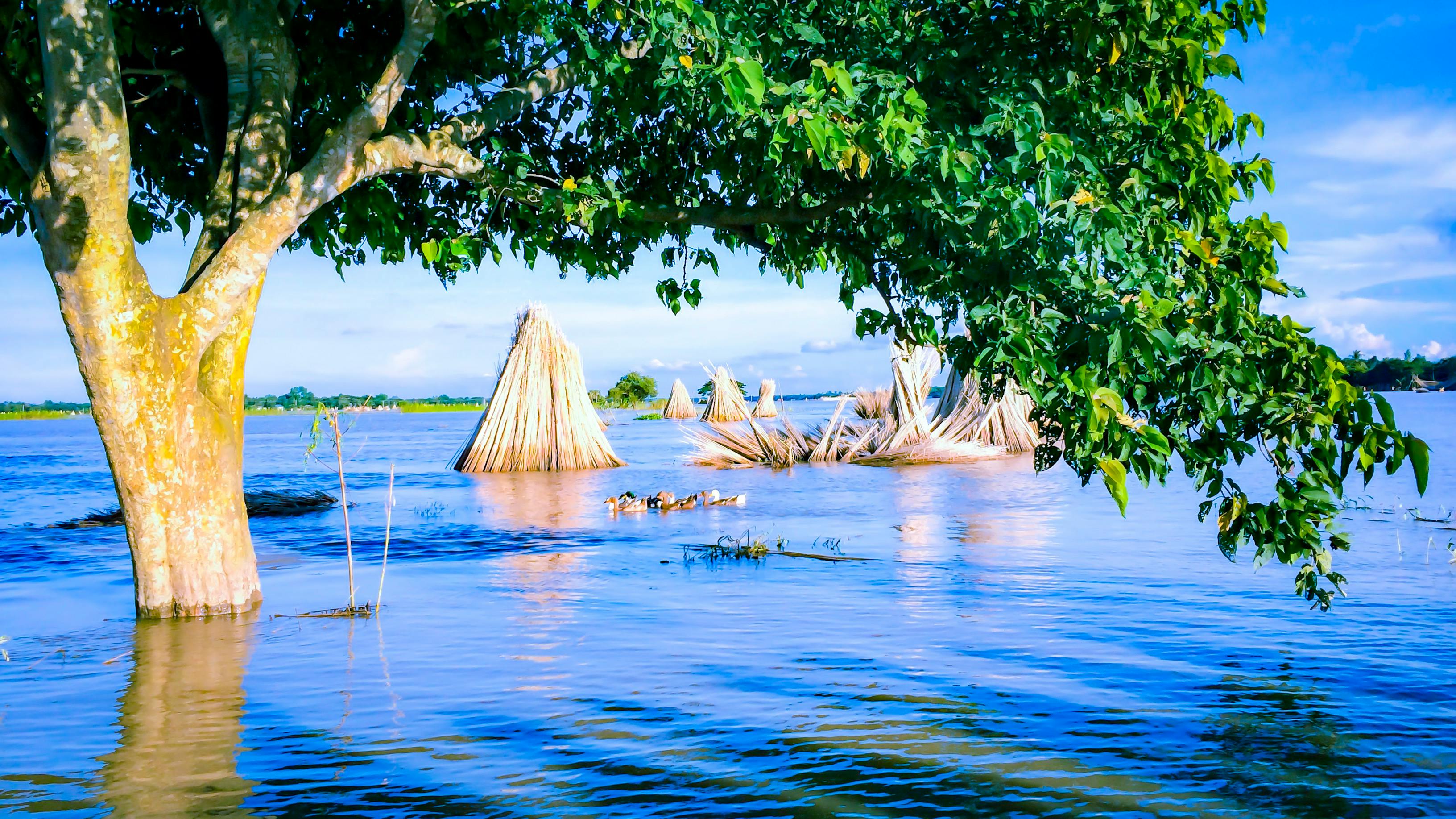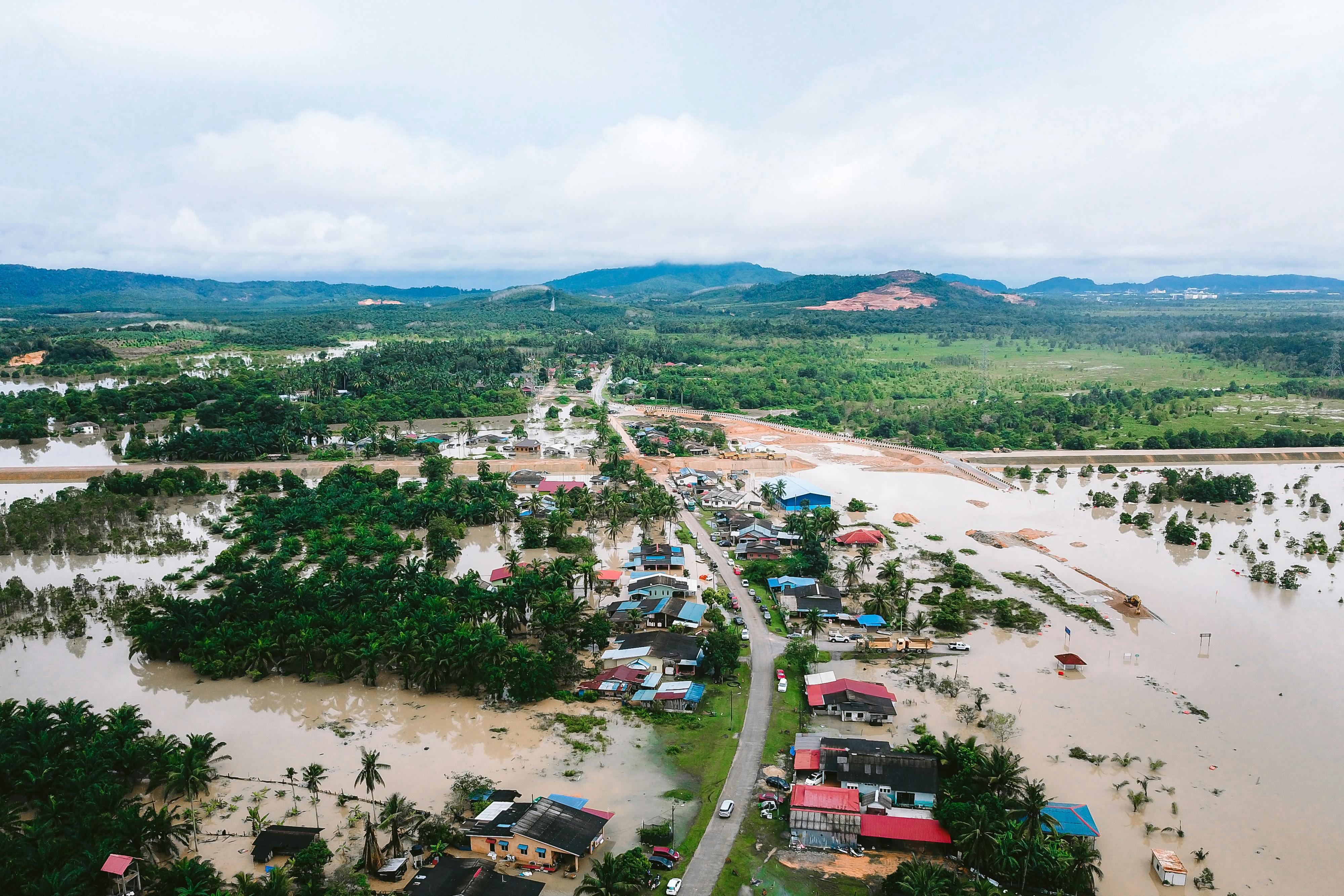
Welcome to geoDRR

The project geoDRR - Geomatics for Disaster Risk Reduction is funded by the Erasmus+ Programme of the European Commission.

It has a key objective to support Partner Country HEIs in building their capacity to develop and deliver high quality and specialisation academic programmes that can suitably prepare young scientists and professionals to provide applicable solutions to various societal problems, focusing on these resulting from climate change, mainly disaster risk vulnerability and susceptibility.

As already established, climate change impacts on both the frequency and intensity of weather-related disasters, while reduces resilience that can increase vulnerability in all kinds of natural hazards. Reducing disaster risk can, thus, contribute to climate change adaptation and mitigation, especially in countries of the South-east Asia which are already among the most vulnerable, globally, to climate change.
-
GeoDRR
Start your studies with a specialization in Geomatics for Disaster Risk Reduction at:
Project Overview
The project geoDRR - Geomatics for Disaster Risk Reduction is funded by the Erasmus+ Programme of the European Commission. It has a key objective to support Partner Country HEIs in building their capacity to develop and deliver high quality and specialisation academic programmes that can suitably prepare young scientists and professionals to provide applicable solutions to various societal problems, focusing on these resulting from climate change, mainly disaster risk vulnerability and susceptibility.
As already established, climate change impacts on both the frequency and intensity of weather-related disasters, while reduces resilience that can increase vulnerability in all kinds of natural hazards. Reducing disaster risk can, thus, contribute to climate change adaptation and mitigation, especially in countries of the South-east Asia which are already among the most vulnerable, globally, to climate change.
Objectives
The Project foresees to address specific aspects related to the overall aim, via compartmentalizing the general pursuance into smaller, more achievable objectives:
- Build the capacity of academic, administrative, and technical staff of Partner Country HEIs in developing and efficiently delivering an MSc in “Geomatics for Disaster Risk Reduction”,
- Help the new generation of scientists will be able to assess vulnerability and risk with the use of geomatics, as well as contribute in building resilient communities by detailed planning and mapping of disaster risk, potential impact, and appropriate mitigation and relief actions
- Raise awareness in local communities and mobilize authorities to act on disaster risk reduction through structured, participatory policies that address prevention
- Develop links between academia and the labour market, especially by adequately equipping future professionals with all the necessary skills to thrive under constantly changing circumstances.
Activities
The development of the MSc Curriculum during the geoDRR project will be preceded by a brief preparation phase, during which all Partner Country HEIs will work on the identification of:
- a. academic needs of staff and students,
- b. specifications of the Laboratories,
- c. requirements for the official accreditation of the MSc.
On the one hand, Partner Country HEIs will develop the MSc Curriculum and Syllabus and conclude all the necessary actions for the establishment of the Laboratories in their premises, while on the other hand, Programme Country partners will develop and launch the Virtual “GIS for DRR” Learning Environment (VLE) and elaborate its content for staff and students. The Curriculum will comprise of twelve courses plus an MSc thesis, corresponding to 120 ECTS.
Later during the project, the capacity building activities for Partner Country HEIs’ academic, administrative, and technical staff will be realized. The activities will include:
- a. three Educational Study Visits to Programme Country HEIs facilities to get acquainted with theoretical and practical aspects of teaching geomatics and be introduced to teaching methods and tools that correspond to the needs of the new generation of scientists,
- b. three trainings in Partner Country HEIs by Programme Country HEIs that will include, among others, hands-on training on the newly established Laboratories, theoretical training on topics covered by the MSc, and familiarization with the use of digital tools.
The last part of the development phase comprises the accreditation, delivery and interim evaluation of the MSc in Partner Country HEIs.
- Build the capacity of academic, administrative, and technical staff of Partner Country HEIs in developing and efficiently delivering an MSc in “Geomatics for Disaster Risk Reduction”,
Courses
Geodatabase & Web GIS
Disaster Risk Reduction: Prevention, Impact Mitigation and Prepared...
Geo-Information Imagery for Disaster Relief and Recovery
Geo-information for Risk & Vulnerability Assessment
Geoinformation Science Application
Extraction and Analysis of Geospatial Data
Natural Hazards, Exposure and Risk Mapping
Geo-Spatial Analysis of Multi-Hazard Risk
Creativity, Design Thinking & Innovation
Lorem ipsum dolor sit amet, consectetur adipiscing elit. Curabitur ...
This course is a live presentation on the 27th of March
This course describes the state-of-the-art knowledge on natural haz...
This course describes the latest knowledge on the basic concepts an...
This course describes the state-of-the-art knowledge on the widely ...
This course will the methods to conduct a successful research for n...
This course provides knowledge about disaster management including ...
This course describes the state-of-the-art knowledge on geospatial...
This course discusses the manipulation, analysis, and graphical pre...
This course discusses the application of the latest geoinformation ...
Geographic information technology is used to obtain recurring and u...
This course discusses the concept of natural hazard risk assessment...
This course describes spatial concepts and data model solutions in ...
This course educates students in integrated disaster risk managemen...
This course integrates knowledge of various fields, including susta...
This course introduces students to perform an observation, understa...
This course delves into the intricate relationship between natural ...
This course delves into the extraction, analysis, and dissemination...
This course delves into the application of geo-information imagery ...
This course delves into the realm of Web GIS, focusing on the creat...
This course delves into the application of geospatial technologies ...
This course introduces
students to the origins, concepts, of Natur...
Basic Concepts of GIS and Remote Sensing introduces students to the...
Disaster Risk Reduction Management is a comprehensive course that e...
Thesis 2This course provides students with analytical and practical...
Thesis 1This course provides students with analytical and practical...
GDRR 514 - Extraction And Analysis Of Geospatial DataThe students w...
GDRR 530 - Natural Hazards, Exposure And Risk MappingStudents will ...
GDRR 520 - Natural Hazard ModelingThis course examines the complex ...
GDRR 524 - Geoinformation Science ApplicationsThis course discusses...
GDRR 513 - Environmental Planning and Sustainable DevelopmentFundam...
GDRR 515 - Data Science Applications in DRRThe data science course ...
GDRR 523 - Land Use Planning and ManagementFundamental principles, ...
GDRR 510 - Research in Disaster Risk Reduction (DRR) and Climate Ch...
GDRR 532 - Building Resilient Communities Based on Geo-Information:...
GDRR 516 - Geo-Spatial Analysis of Multi-Hazard RiskThe course begi...
GDRR 525 - Geo-Information Imagery for Disaster Relief And Recovery...
GDRR 526 - Geo-information for Risk & Vulnerability Assessment ...
GDRR 526 - Geo-information for Risk & Vulnerability Assessment ...
GDRR 521 - Remote Sensing Applications in DRR and Climate Change Th...
GDRR 512 - Introduction to Natural Hazards and RiskThis course desc...
Course DescriptionThis course describes the latest knowledge on the...
This course is designed to equip students with the necessary
skill...
In this course, students will complete a capstone project that inte...
This course introduces students to the concepts, methodologies, and...
This 20-week practicum course is a graduate-level immersive experie...
This course provides an in-depth study of using geo-information in ...
This course provides a comprehensive understanding of communication...
This course introduces students to the principles and practices of ...
The course introduces advanced methods for managing spatial databas...
This graduate-level course explores research methods and
statistic...
"Risk
Governance & Resilience" examines the roles of governanc...
This graduate-level course explores the principles and practices of...
This graduate-level course explores the science of natural hazards,...
This course describes
the latest knowledge on the basic concepts a...





